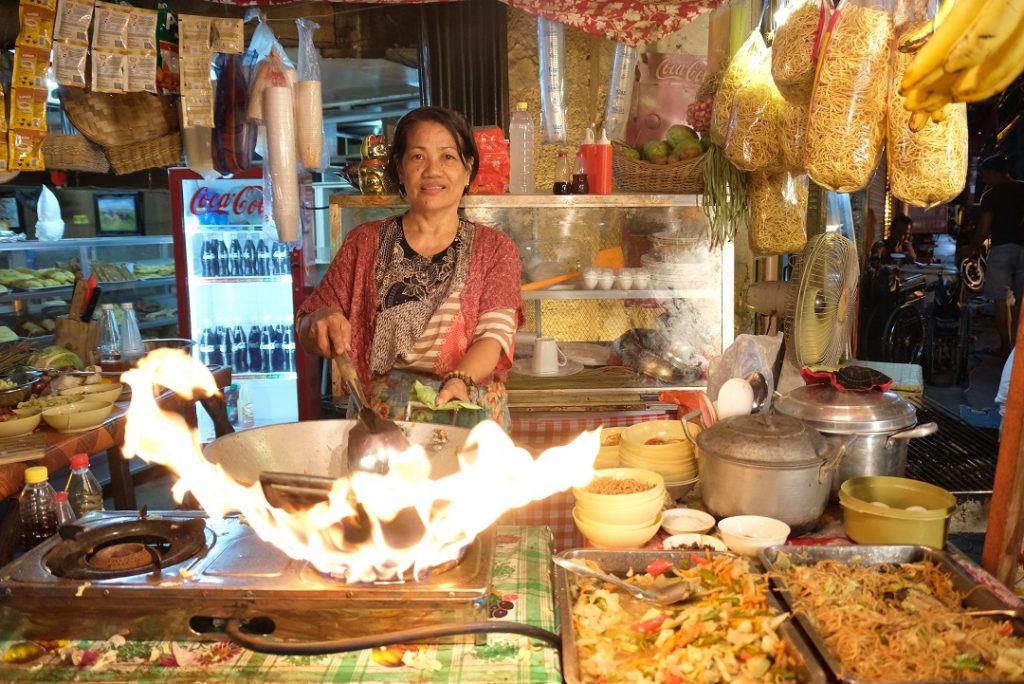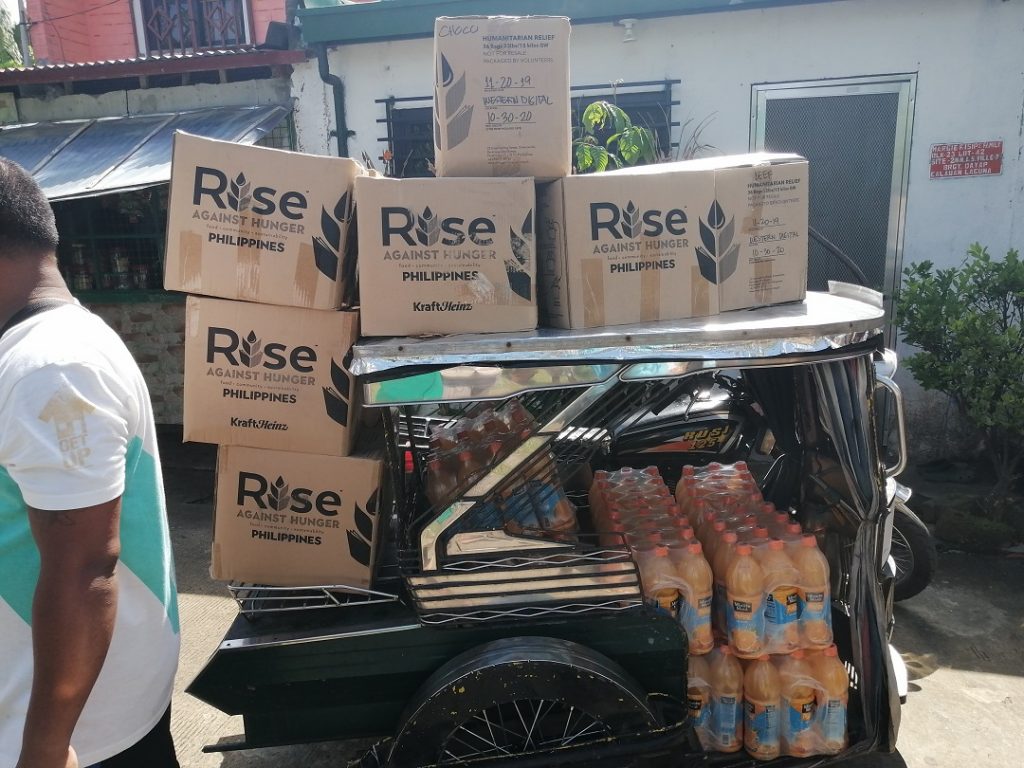Putting people first has always been the long-standing commitment of Coca-Cola in the Philippines for 108 years.
From keeping the health and safety of its employees top priority, helping small and medium retail partners restart, supporting waste collectors sustain their livelihood, and providing water access for better health to water-poor communities, the Company has always stood strong together with the Filipino people through every crisis and disaster.
A legacy of reaching out and touching lives
Following the onslaught and devastation brought by Typhoon Yolanda in 2013, Coca-Cola provided 130,000 cases of potable water. It immediately worked toward the opening of the Tacloban plant, which allowed for access to water for daily use. In the wake of the Marawi siege of 2017, hydration was swiftly made available to both soldiers and displaced families. Coca-Cola was also there during the Mindanao earthquake of 2019, which saw the deployment of a water filtration system, as well as during the recent Taal eruption this 2020.

To help survivors get back on their feet, Coca-Cola went beyond providing beverages, by also making available a business and gender sensitivity training called 5by20 Sari-Sari Store Training and Access to Resources (STAR) program. This program was implemented for women in Tacloban and Marawi. Meanwhile, during the Mindanao earthquake, Coca-Cola, through the Coca-Cola Foundation, extended a US$500,000 grant to aid in the recovery of about 10,000 displaced individuals with temporary shelters, non-food supplements, and other necessities.
With the COVID-19 pandemic, thousands of litres of beverages, along with other crucial necessities such as food and personal protective equipment (PPEs), have been made available to those at the frontlines, people in vulnerable communities, and everyone else at home and in quarantine. The Company is also working on initiatives to help partners restart in these challenging times.
“At a tough time like this, we know the value that Coca-Cola products bring to Filipinos,” says Winn Everhart, Coca-Cola Philippines General Manager. “It’s an honour for us to help ease the unprecedented trials everyone is going through, and we hope that in our small ways, we are making a positive difference.”
Protecting employees, supporting our distributors, customers, and communities
The Company, with its 10,000 direct employees in 19 plants and over 70 distribution centres, immediately instituted additional stringent protocols and systems to take care and prioritise the safety and total well-being of employees—fleet drivers, plant workers, delivery personnel, and all other associates involved in operations. Coca-Cola also mobilised their available resources and workforce to provide support for frontliners and vulnerable communities and guaranteed the consistent supply of their products in retail outlets.

“Global health and safety protocols have always been in place in our facilities, and they inform every step of our procedures. With the institution of the community quarantine— where Coca-Cola was considered as belonging to the essential manufacturing sector— our sites rigorously followed the regulations set by the Department of Trade and Industry (DTI), the Department of Health (DOH), and the Department of Labor and Employment (DOLE). We are also making sure that our employees are well cared for, and that they can continue providing for their families,” says Gareth McGeown, CEO of Coca-Cola Beverages Philippines, Inc.
Some of the additional measures imposed in sites nationwide include the use of thermal scanning upon entry in all Coca-Cola locations, the provision of PPEs to personnel, the installation of foot and truck baths in compliance with stricter ingress and egress procedures, and point-to-point shuttles. Further to this, adjusted work arrangements have also been implemented; comprehensive health support through HMO coverage in the unfortunate case that an employee is diagnosed with COVID-19; mental and psychological health support, when needed. The advanced disbursement of 13th-month pay among other incentives and benefits, have also been enacted.
“We will do our best to continuously care for our people and serve communities—leveraging on our resources and our huge nationwide footprint; we will make sure that we will get to those who need our support. We will also continue to serve and support our customers and partners, especially small and medium enterprises like sari-sari stores, to help preserve their livelihood amidst the pandemic. Our people, our very own frontline heroes, make this possible. They are the strength of this Company.” McGeown added.
Helping Filipino heroes and communities in need
With all these efforts, the Company—working alongside key partners TOWNS Foundation, UP Medical Foundation, the Philippine Disaster Resilience Foundation, Caritas Manila, McDonald’s Kindness Kitchen, Rise Against Hunger-PH, Philippines Business for Social Progress, and Jollibee Foundation—has been continuously providing beverages, food packs, and PPEs to cater to the needs of frontliners and vulnerable communities.
To date, nearly 500,000 litres of beverages have been provided to 125 public and private hospitals, 99 local government units (LGUs), 53 national government agencies, and 50 non-government organisations (NGOs) and foundations. Frontliners in 305 medical institutions have been provided with PPEs, and 33,000 families have been supplied with food packs.
In North and South Luzon provinces, 15 LGUs and frontliners in 29 medical institutions were provided with beverages.
Among the LGUs are Camarines Sur; Urdaneta; municipalities of Calasiao, Subic, Caba (from Carlatan), San Vicente in Palawan, Bauang, San Fernando in La Union; cities of Santa Rosa and Baguio; provinces of Palawan, Cavite, and La Union; and barangays Pinamarbuhan in Masbate and Bued in Pangasinan.
The medical institutions include Benguet General Hospital, Notre Dame de Chartres Hospital, Diosdado Macapagal Memorial Hospital, St. Louis University Hospital, Ilocos Training and Regional Medical Center, Caba District Hospital, Immaculate Conception Medical Center, Pagamutan ng Dasmariñas, Tagaytay Medical Center, Carmona Hospital & Medical Center, Medical Center Imus, Southeast Asian Medical Center in Bacoor, Cavite Medical Center, St. Paul Hospital in Dasmariñas, Our Lady of the Pillar Hospital in Imus, Dasmariñas City Medical Center, Asiamedic Hospital, De La Salle Medical Center, Carsigma District Hospital, Binakayan Hospital and Medical Center, South City Hospital Medical Center, Mother and Child’s Cradle of Health, San Jose District Hospital in Occidental Mindoro, Bautista Hospital, Our Savior Hospital, San Pedro Calungsod Medical Center, Crisostomo General Hospital, Laguna Provincial Hospital, and Masbate Provincial Hospital.
Hydration was also provided to checkpoints and frontliners in Naga, Daet, Legazpi, Lucena, Dasmariñas, and other areas of Cavite, Lipa and other areas in Batangas, and Masbate; as well as the Bacoor Disaster Risk Reduction and Management office, Philippine National Police (PNP) and Bureau of Fire Protection in Masbate, Naga City Livelihood and Incubation Center, and PNP in Caba and Region 3.
NGOs given hydration to are the Philippine Nurses Association-La Union Chapter, Integrated Chemists of the Philippines in Bicol, Negros Women for Tomorrow Foundation in Legazpi, and the Akbayanihan Foundation in Cavite.
“For more than 100 years, Coca-Cola has been committed to making a positive impact in the lives of the millions of Filipinos we serve. We believe that we are only as strong and as sustainable as the communities we serve; and thus, will continue to do the same, as a part of the Filipino community, in the next hundred more,” said Everhart.




